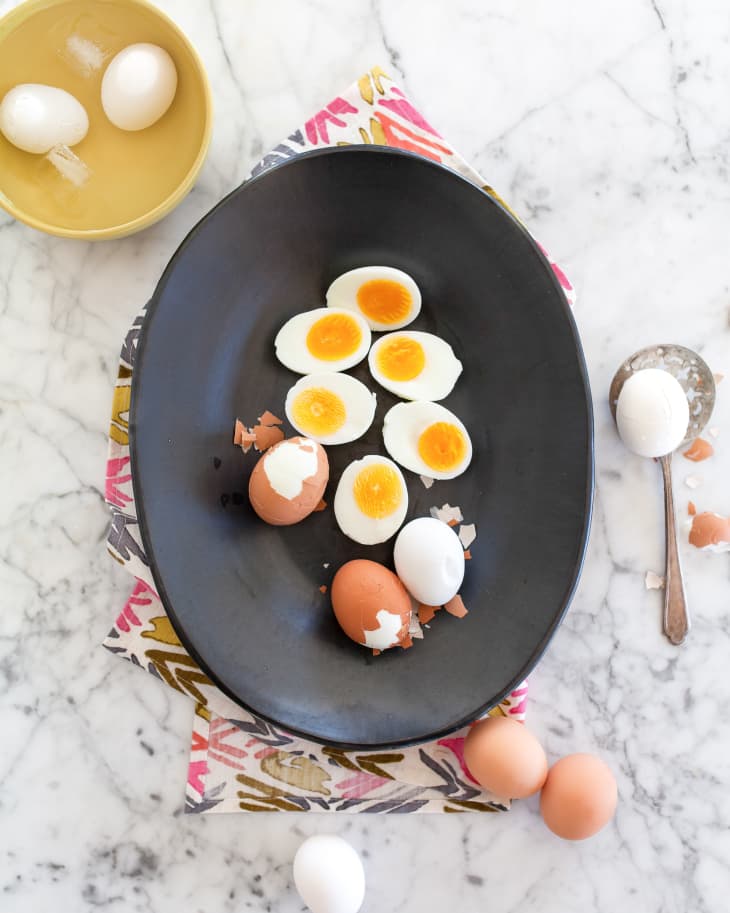Mistakes to Avoid When Making Hard-Boiled Eggs
Hard-boiled eggs seem like a really basic thing to cook. Eggs, saucepan, water, and you’re all set. There are a few cooking method variations, and everyone has their favorite. But no matter what method you use to hard-boil eggs, there are a few common mistakes you should always take care to avoid.
1. Using the wrong pot.
Don’t try to cram too many egg in a pot that’s two sizes too small. Not only will the eggs cook unevenly, but there’s more risk of an egg cracking.
Follow this tip: Use an appropriately sized pot for the number of eggs you’re cooking. Eggs should sit in a single layer and have enough space to move around.
2. Starting with boiling water.
If you’re about to place uncooked eggs in a pot of boiling water, stop what you’re doing immediately.
Making hard-boiled eggs should always begin with cool water. Bringing the water and eggs up in temperature together helps promote even cooking and prevent cracking.
Follow this tip: Always start with cold water. Place the eggs in a saucepan and cover with cold water.
3. Using eggs that are too fresh.
Hard-boiled eggs can be tricky to peel, and this is especially true when they’re made using eggs that are too fresh. As eggs age, two things happen that make them easier to peel. First, they lose moisture through small pores in the shell, and the air pocket at the tip of the egg gets larger. Also, the pH level of the whites rise as they age, which makes them adhere less strongly to the shell.
Follow this tip: For hard-boiled eggs that are easier to peel, use older eggs. Buy your eggs a week or two before you plan to boil them and let them age in the fridge.
4. Overcooking them.
Have you ever peeled open a hard-boiled egg and noticed that the yolk had a gray-green tint? A slightly sulphur-like odor? A rubbery white? Dry, crumbly yolk? All of these are results of an overcooked hard-boiled egg.
Follow this tip: Start by putting the eggs in a saucepan, covering them with cold water, and bringing it to a boil. Then, remove the pan from the heat, cover it, and let it sit for 10 minutes for firm yet creamy hard-boiled eggs, or up to 15 minutes for very firm eggs.
5. Skipping the ice bath.
In theory, it seems like the eggs should be finished cooking when the timer buzzes and you drain the water from the pan, but in reality, that’s not the case. Even once the eggs are removed from the water, they’re still hot. The heat from carryover cooking will continue to cook the eggs, risking overcooking.
Follow this tip: Not only is an ice bath your ticket to stopping the cooking immediately, but it will also help separate the egg membrane from the shell, making it easier to peel. Once the eggs have finished cooking, drain the water from the saucepan and transfer the eggs to an ice bath. Let them soak until they’re fully cooled. Then eat or store in the refrigerator.
What are your best tips for making hard-boiled eggs? Tell us in the comments below.
